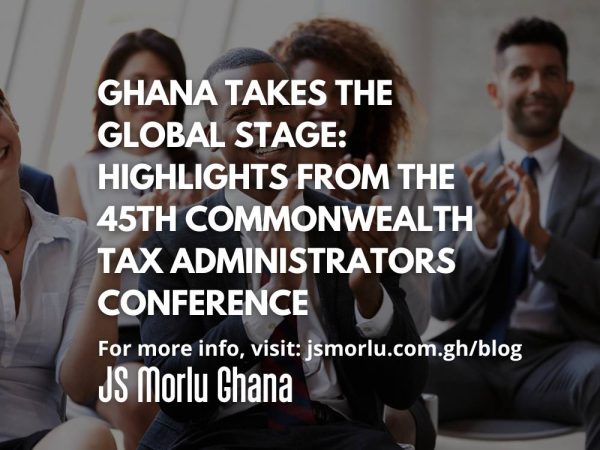A Spotlight on Ghana at the Forefront of Tax Reform
At the 45th Annual Meeting and Technical Conference of the Commonwealth Association of Tax Administrators (CATA), hosted in Port Moresby, Papua New Guinea, the Ghana Revenue Authority (GRA) made a lasting impression on the international tax community. The event gathered senior tax administrators and policy experts from 47 Commonwealth countries to discuss innovations, reforms, and challenges in today’s complex global tax environment.
Ghana’s Leadership in International Tax Dialogue
Ghana’s delegation, led by Commissioner-General Anthony Kwasi Sarpong, played a pivotal role throughout the conference. Mr. Sarpong moderated one of the flagship sessions titled:
“Implementing Global Tax Standards While Preserving National Interest: Strategies for Adapting International Frameworks”
In his opening remarks, Mr. Sarpong addressed a key dilemma faced by many emerging economies: the balance between embracing global tax norms like the OECD’s Base Erosion and Profit Shifting (BEPS) framework and safeguarding national revenue priorities.
“Tax administrations in emerging markets face the dual responsibility of remaining internationally compliant while protecting national revenue bases,” said Sarpong. “This session is about finding that common ground.”
Key Themes from the Conference Sessions
The discussions reflected urgent global challenges and opportunities facing tax authorities today. Topics included:
- Adaptation of BEPS measures in the context of developing economies
- Digital services taxation and how nations are handling cross-border e-commerce
- Capacity development for low- and middle-income countries
- The role of domestic resource mobilization (DRM) in achieving sustainable development goals (SDGs)
Ghana’s contribution to these conversations underscored its reputation as a thought leader in tax modernization across Africa.
Sharing Ghana’s Reform Journey
Throughout the event, the GRA actively participated in technical panels and bilateral meetings, highlighting the country’s recent achievements and forward-thinking strategies:
The 2023–2026 Medium-Term Revenue Strategy (MTRS)
Ghana’s MTRS offers a structured roadmap to:
- Broaden the national tax base
- Leverage digital technologies to enhance compliance
- Streamline tax administration for greater efficiency
This reform aligns with global best practices while addressing unique local needs a balancing act many countries are still striving to perfect.
National Tax Education Strategy
GRA representatives shared progress on public education initiatives aimed at improving voluntary compliance. The National Tax Education Strategy emphasizes:
- Simplified communication
- Accessible tax literacy programs
- Risk-based taxpayer segmentation for targeted outreach
Strengthening Governance and Accountability
GRA also outlined advances in:
- Risk-based compliance systems
- Anti-corruption frameworks
- Use of data analytics for audit targeting and enforcement
These initiatives are helping Ghana enhance taxpayer trust and streamline audit effectiveness.
Ghana’s Representation at the Conference
Aside from Mr. Sarpong, Ghana’s delegation included Lawrence Hotsonyame, Assistant Commissioner and Head of Domestic Tax Technical Training. Mr. Hotsonyame also serves as Ghana’s representative to CATA, reflecting the country’s continued commitment to regional and global tax collaboration.
About the CATA Conference
The CATA Annual Conference is one of the most respected gatherings of tax officials in the Commonwealth. This year’s sessions focused on:
- International tax cooperation
- Gender equity in tax systems
- Revenue mobilization
- Good governance in tax administration
Hosted by the Internal Revenue Commission (IRC) of Papua New Guinea, the conference included a combination of workshops, plenaries, and closed-door discussions designed to foster innovation and policy exchange among member countries.
Final Thoughts
Ghana’s proactive participation in the 45th CATA Conference signals a maturing and globally engaged tax administration. By balancing international alignment with national interest, the Ghana Revenue Authority offers a model worth studying for emerging economies seeking to modernize their tax systems without compromising local priorities.
